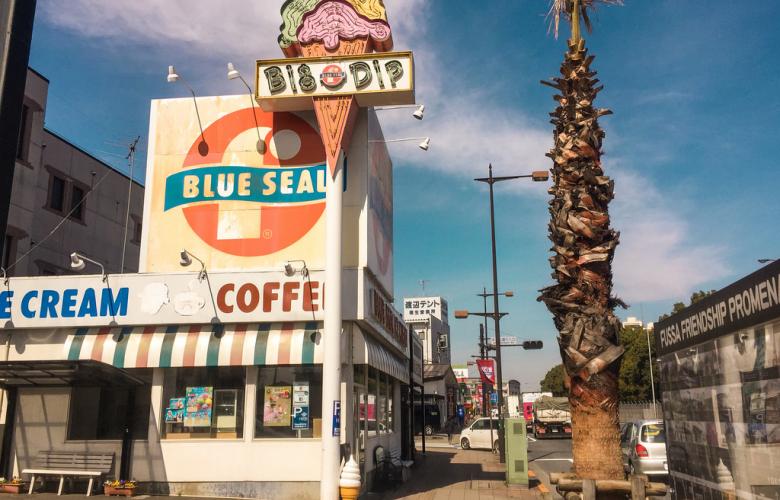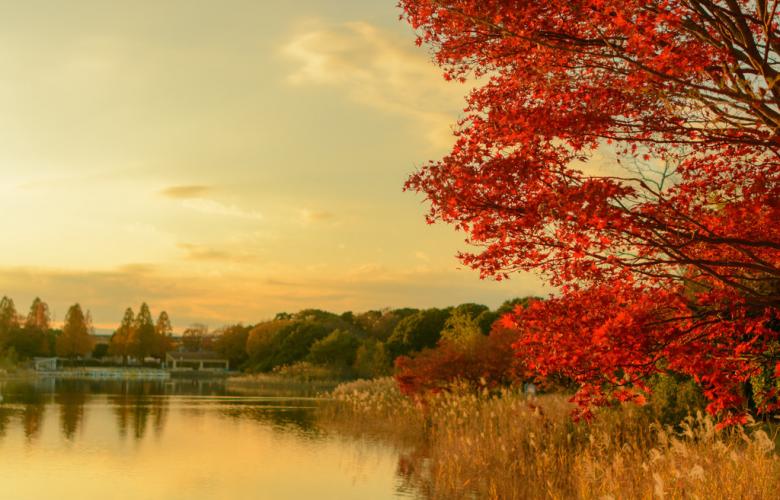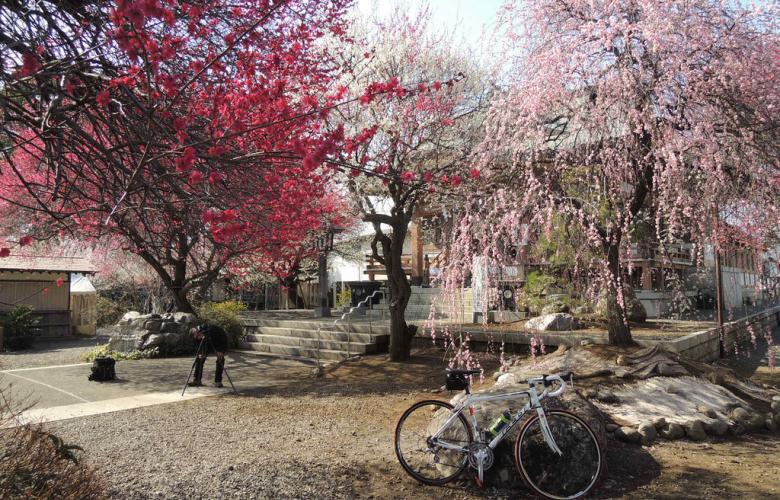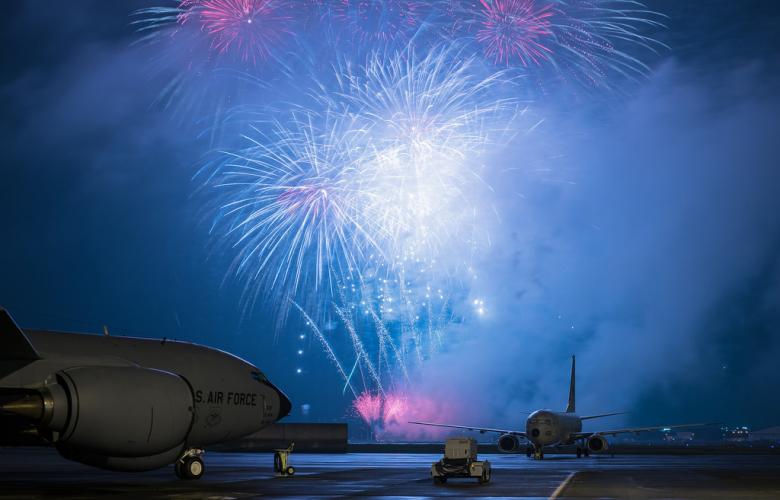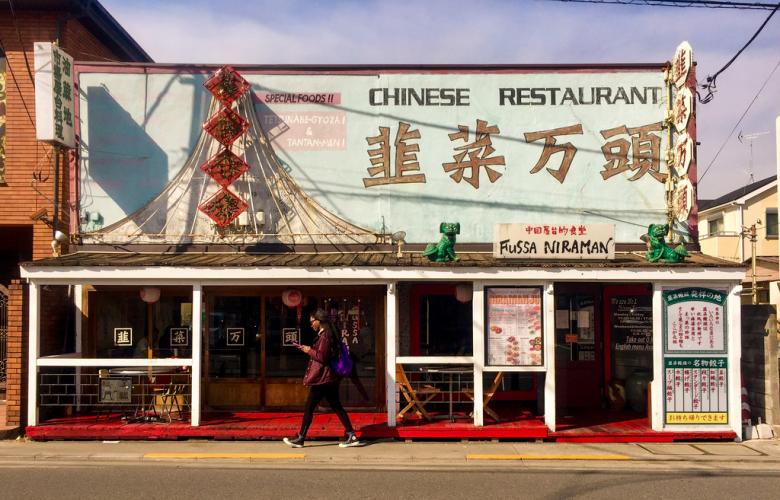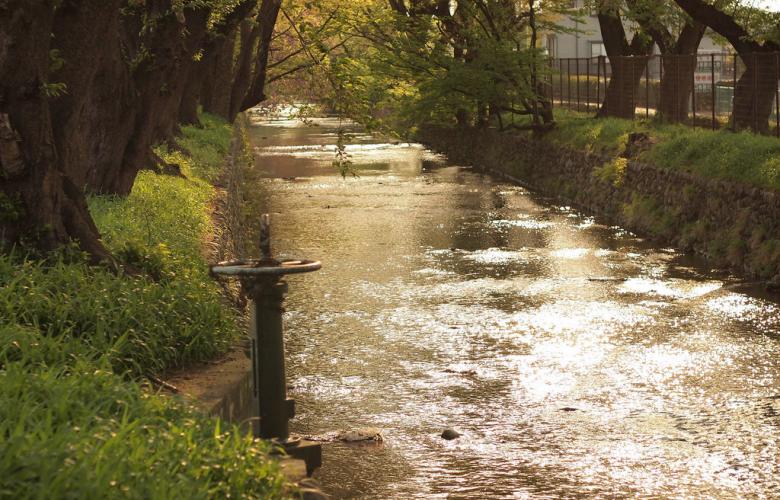A little out of the way for most visitors to Tokyo, Fussa sits roughly between the cities of Tachikawa and Akiruno, functioning as both the home of the United States Air Force Yokota Air Base and a bedtown for workers in central Tokyo.
About an hour by train from Shinjuku, with plenty of restaurants and bars, as well as parks and quiet spaces to unwind, Fussa makes for a decent place to set up house if you're okay with the commute. Properties can be affordable, and the fairly widespread English-language support in the area helps make life that much easier for expats.
Fussa Station
The main port of call, Fussa Station is served by the JR Ome Line, which connects to the super-central JR Chuo Line at Tachikawa Station. Some trains run directly from Shinjuku to Fussa (and beyond to Ome), while others require a transfer at either Mitaka or Tachikawa Station, which are respectively about 35 and 20 minutes away from Fussa.
Higashi-Fussa Station on the JR Hachiko Line is an alternative that provides quick access to Hachioji (under 20 minutes) and the hiking opportunities of Mount Takao.
Other transit options include Ushihama on the Ome Line, one stop down from Fussa Station, and Kumagawa Station, further south on the JR Itsukaichi Line.
Parks and green spaces
Fussa is a short distance from the giant Showa Memorial Park in Tachikawa, as well as a number of other good green spaces. These include the Tamagawa Aqueduct, a 43km freshwater canal that is popular for strolls, plus the family-friendly Fussa Park, Naka-Fussa Park and several other small parks dotted around the city.
Fussa also has a small firefly sanctuary in the form of Hotaru Park, where hundreds of fireflies are released into the skies every summer.
The plum blossom paradise of Ome, together with the rafting-ready Tama River and hiker-friendly Mount Mitake are all within easy reach of Fussa, allowing residents access to an outdoor lifestyle while being based in part of Tokyo proper.
Shrines and temples
While Fussa is not particularly well known for its spiritual sites, a few can be found in the city. Notable examples include Shinmei Shrine, a Shinto space where gorgeous cherry and plum trees blossom in spring, and the Buddhist temple of Seiganin. There are also Christian churches that offer services in English.
Shopping and entertainment
Near Fussa and Ushihama Stations, and also along the road in front of the Yokota Air Base, you'll find a bunch of coffee shops and restaurants, many with menus tailored to a "Western palate". There's everything from bagels to Mexican, steak, curry and fusion sushi.
Fussa has quite a few bars too, many of which have been slinging booze to air-men and -women for several decades.
Other entertainment options include touring the two local sake and beer breweries (Ishikawa and Seishu Kasen), and nipping down for a relaxing soak in the hot spring baths of nearby Akishima Onsen — though perhaps not in that order.
For insights into local culture, the Fussa Tanabata Festival is a traditional summer event that is worth adding to the recreation to-do list.
When it comes to shopping, you can find several supermarkets near Fussa Station, as well as a department store (Seiyu), budget shops for home basics, pharmacies and all the other essentials.
Schools and medical care
Fussa is well supplied with Japanese primary, middle and high schools, but off the base, international options are limited to preschools. There is an international elementary and middle school in nearby Hachioji for older children, though.
While there are plenty of Japanese medical facilities in Fussa, including a general hospital, for reliable access to English-speaking doctors, dentists and the like, you may need to head to Hachioji or further afield, like Shinjuku.
By Carey Finn
Similar to this:
From Tokyo to Takao: 5 reasons to live on the Chuo Line
Shinjuku's nicest neighbour: Nakano
Life done well: Tokyo's delightful Daikanyama neighbourhood

